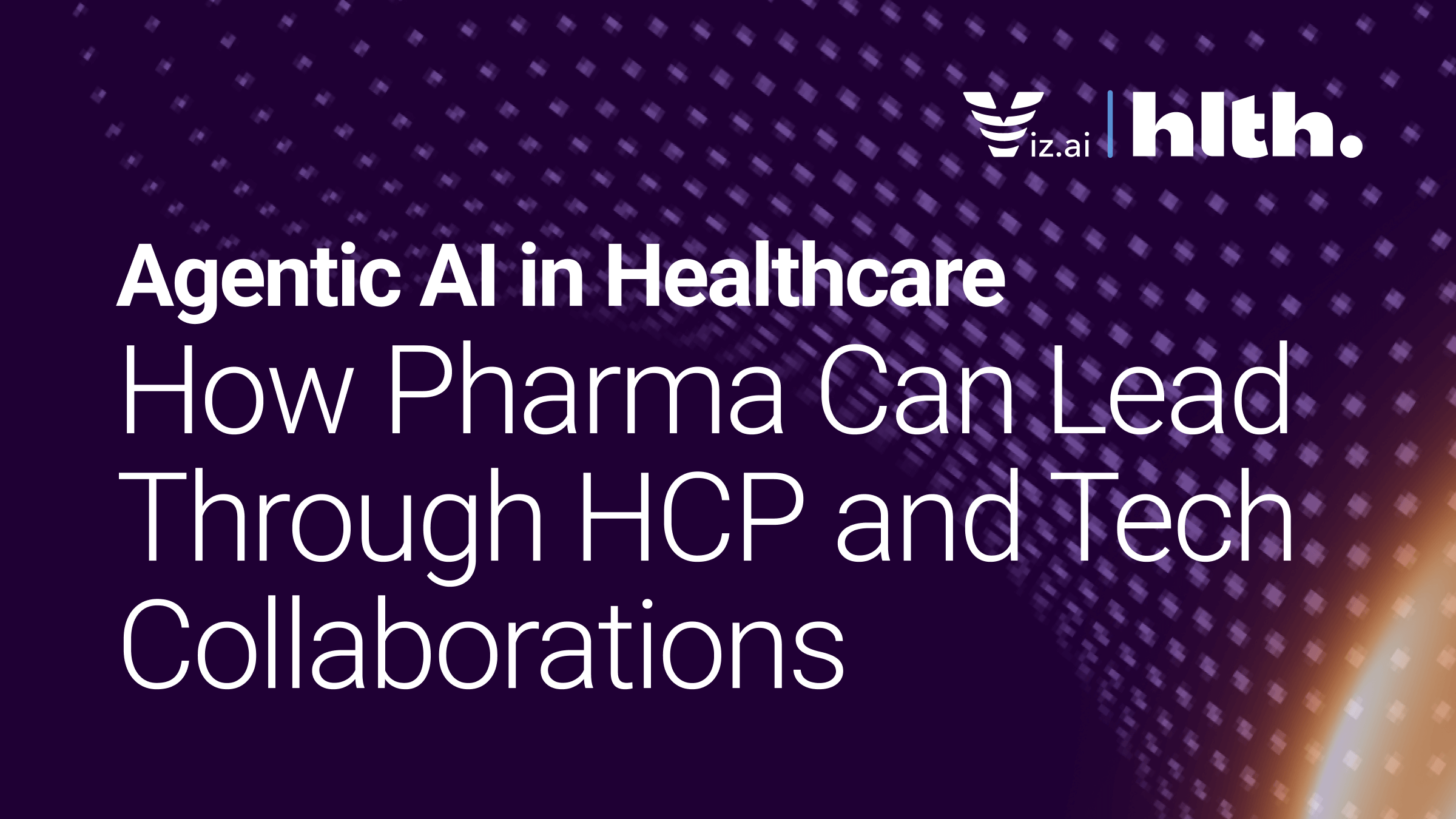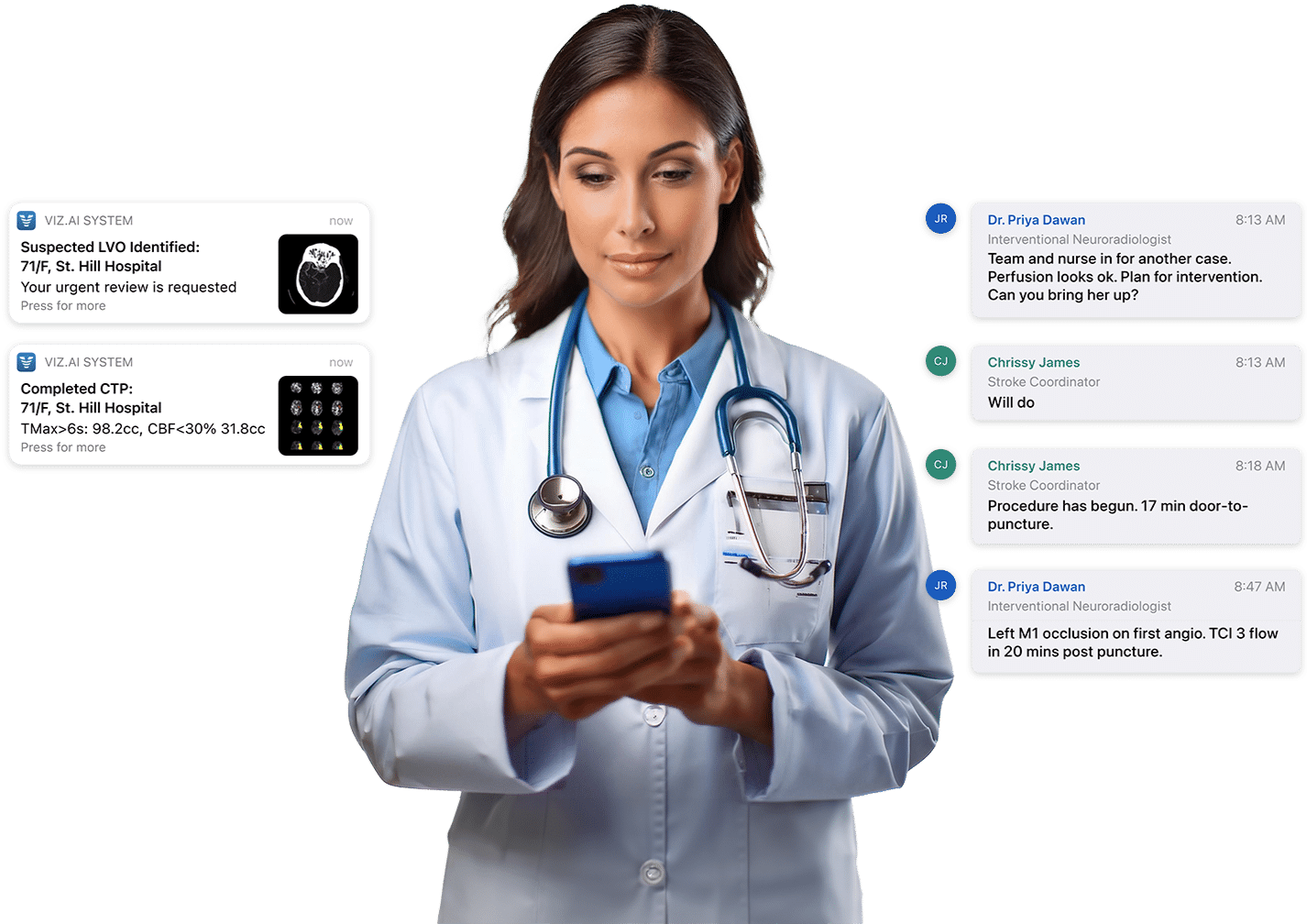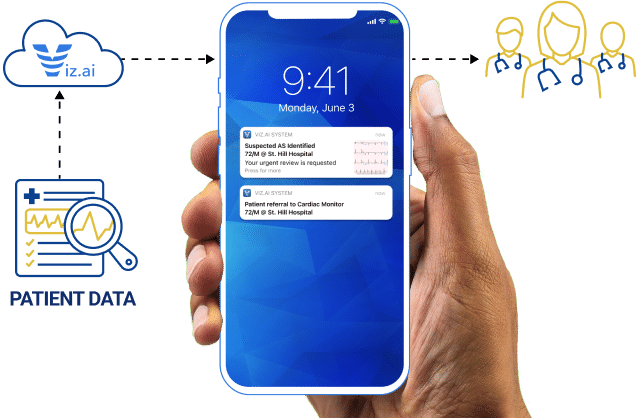
For Life Sciences
AI-Powered
Care Accelerator
Guiding more patients to the right diagnosis, specialist, and treatment faster

For Life Sciences
Guiding more patients to the right diagnosis, specialist, and treatment faster
Life Sciences Partnerships
Viz.ai’s AI-Powered Care Accelerator harnesses proven algorithms to help healthcare providers (HCPs) guide more patients to the right diagnosis, specialist, follow-up care, and treatment faster.
In partnership with pharmaceutical and medical device companies, Viz.ai develops new, customized solutions for treatable diseases. Viz.ai solutions are integrated directly into HCP clinical workflows, empowering HCPs to treat more patients and swiftly take the next best clinical action, enhancing adherence to clinical guidelines and advancing patient care.

How Viz.ai Works
Ingests data from numerous locations, identifying patients who need follow-up care
Sends AI-powered notifications to multidisciplinary care teams via desktop or mobile app
Triggers HCPs' next best clinical action so more patients reach appropriate care and treatment faster


Real-World Results
Life Sciences Case Studies
Learn how Viz.ai deployed a new AI-Powered Care Accelerator solution to accelerate stroke patient referrals to cardiologists.
Learn how Viz.ai deployed a new AI-Powered Care Accelerator solution in an underdiagnosed and undertreated rare disease.
Schedule a Meeting
See how partnering with Viz.ai can do more for patients who need your treatments.
References:
1. Viz LVO. Data on file. 2. US Food and Drug Administration Letter K210237. Mean time-to-notification for AD with a mean of 36.5 seconds and a max time of 90.5 seconds. Accessed August 14, 2024. http://www.accessdata.fda.gov/cdrh_docs/pdf21/K210237.pdf 3. Kim HW, Ballekere A, Ali I, et al. Machine learning–enabled detection of unruptured cerebral aneurysms improves detection rates and clinical care. Stroke Vasc Interv Neurol. Published online 2023. Accessed August 14, 2024. http://www.ahajournals.org/doi/10.1161/SVIN.123.000938 4. YPS Siddharthan Campbell M, Huebsch R, et al. A brain to heart chat – improving workflows of implantable loop recorder for cryptogenic strokes. Neurology. 2024;102 (17 supplement 1). Accessed August 14, 2024. https://www.neurology.org/doi/10.1212/WNL.0000000000208302